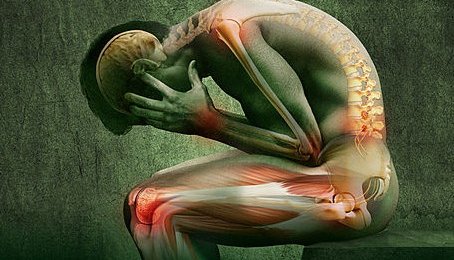The risk factors for developing chronic pain and depression remain unclear. It is also unknown whether chronic pain causes depression, or, depression causes chronic pain.
Experts hypothesize these conditions are caused by a confluence of genetic and environmental factors; it is difficult to determine which condition comes first.
A group of researchers from The University of Edinburgh in the United Kingdom studied the correlation between genetic and environmental factors and their influence on the development of chronic pain and depression.
The team dissected the genetic backgrounds of over 100,000 participants, leading to an interesting discovery: partners of people with depression are more likely to experience chronic pain.
Although environmental conditions appeared to be the leading risk factor, it is not the sole cause; genetics played a large role, too.
Heritability accounted for 38.4 percent of the “variation in chronic pain risk,” similar to that of depressive disorders (which affects 15.7 million Americans each year (ages 18 and older)) with a heritability risk of 37 percent. The genetic predisposition of depressive disorders is similar to the genetic origination of chronic pain; they are related.
We hope our research will encourage people to think about the relationship between chronic pain and depression and whether physical and mental illnesses are as separate as some believe. ~Prof. Andrew McIntosh, chair of Biological Psychiatry at the University of Edinburgh, U.K.
Our genes and our environment work together; so do our bodies and our minds—they’re partners. We may not be able to control our genetic inheritance, but we can control how we live our lives: how we think, how we eat, how we exercise, how we shape our environment, in turn, lowering our risk of developing dis-ease and disease.
Read the full article here.
Comments are closed.



